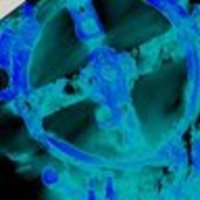
Xenophon Moussas
(retired) Professor of Space Physics,
one of the protagonists of the study of the oldest known computer, the Antikythera Mechanism.
He has served as Head of Space Physics group, as Director of the Astrophysics Laboratory, as Director of the Observatory of the National and Kapodistrian University of Athens, as Deputy Chairman of the Faculty of Physics, as Senator of the National and Kapodistrian University of Athens, as President of the Association of Professors of Science.
Awards include: NASA group achievement award, Ulysses Mission, 2009, Geophysical Research Letters editor’s citation for excellence in refereeing in Space Physics, American Geophysical Union, Boston, 2001,
Hipparchus award, Arcadia, Athens, 2010,
Award of the Association of Attica Private Tutorial Teachers and the Federation of Private Tutorial Teachers of Greece, 2017
Honorary Doctor of the International Academy of Education and Science, Ukrainian Institute of Scientific and Cultural History (Pontic Institute), Kiev, Ukraine, 2017.
Research interests include Space physics: Ulysses mission (ESA) team member, WIND/WAVES and STEREO space mission (NASA) as co-investigator, cosmic rays, solar physics, and planetary physics.
He has supervised 26 PhDs, many MSc these, and 200 BSc theses.
Numerous exhibitions worldwide about the Antikythera Mechanism, Astronomy etc.
Honorary Doctor of the International Academy of Education and Science, Ukrainian Institute of Scientific and Cultural History (Pontic Institute), Kiev, Ukraine, 2017.
Supervisors: He has supervised 26 PhDs, many MSc these, and 200 BSc theses.
Phone: +306978792891
Address:
Department of Astrophysics, Astronomy and Mechanics
Faculty of Physics
School of Science
National and Kapodistrian University of Athens
Panepistimiopolis, GR 15783 Zographos, Athens, Greece
e-mail: xmoussas@phys.uoa.gr
e-mail: xmoussas@gmail.com
http://artemis-iv.phys.uoa.gr/
http://www.antikythera-mechanism.gr
cv:
http://www.antikythera-mechanism.gr/project/team/academic/xenophon-moussas
https://scholar.google.gr/citations?hl=el&user=b8aDvyIAAAAJ
one of the protagonists of the study of the oldest known computer, the Antikythera Mechanism.
He has served as Head of Space Physics group, as Director of the Astrophysics Laboratory, as Director of the Observatory of the National and Kapodistrian University of Athens, as Deputy Chairman of the Faculty of Physics, as Senator of the National and Kapodistrian University of Athens, as President of the Association of Professors of Science.
Awards include: NASA group achievement award, Ulysses Mission, 2009, Geophysical Research Letters editor’s citation for excellence in refereeing in Space Physics, American Geophysical Union, Boston, 2001,
Hipparchus award, Arcadia, Athens, 2010,
Award of the Association of Attica Private Tutorial Teachers and the Federation of Private Tutorial Teachers of Greece, 2017
Honorary Doctor of the International Academy of Education and Science, Ukrainian Institute of Scientific and Cultural History (Pontic Institute), Kiev, Ukraine, 2017.
Research interests include Space physics: Ulysses mission (ESA) team member, WIND/WAVES and STEREO space mission (NASA) as co-investigator, cosmic rays, solar physics, and planetary physics.
He has supervised 26 PhDs, many MSc these, and 200 BSc theses.
Numerous exhibitions worldwide about the Antikythera Mechanism, Astronomy etc.
Honorary Doctor of the International Academy of Education and Science, Ukrainian Institute of Scientific and Cultural History (Pontic Institute), Kiev, Ukraine, 2017.
Supervisors: He has supervised 26 PhDs, many MSc these, and 200 BSc theses.
Phone: +306978792891
Address:
Department of Astrophysics, Astronomy and Mechanics
Faculty of Physics
School of Science
National and Kapodistrian University of Athens
Panepistimiopolis, GR 15783 Zographos, Athens, Greece
e-mail: xmoussas@phys.uoa.gr
e-mail: xmoussas@gmail.com
http://artemis-iv.phys.uoa.gr/
http://www.antikythera-mechanism.gr
cv:
http://www.antikythera-mechanism.gr/project/team/academic/xenophon-moussas
https://scholar.google.gr/citations?hl=el&user=b8aDvyIAAAAJ
less
Related Authors
Raul Perez-Enriquez
Universidad de Sonora
Florentin Smarandache
University of New Mexico
Vijay Tangde
University of Leeds
Keith Lawler
University of Nevada, Las Vegas
Telhat Ozdogan
Rize Üniversitesi, Deparmet of General Surgery
U. Von Barth
Lunds University
InterestsView All (32)







Uploads
Papers by Xenophon Moussas
Ο μηχανισμός των Αντικυθήρων είναι ένα πανάρχαιο πολύπλοκο μηχάνημα με γρανάζια βρέθηκε σε ένα τεράστιο ναυάγιο γεμάτο με Ελληνικούς θησαυρούς, ένα πραγματικό μουσείο, που βυθίστηκε πιθανότατα ανάμεσα στα 80 με 60 π.Χ. στο βόρειο άκρο των Αντικυθήρων με πολύτιμα αντικείμενα διαφόρων εποχών που με χιλιάδες παρόμοια φορτία οι Ρωμαίοι κατάκλεψαν την Ελλάδα. Από τότε ο Συμιακός δύτης ανέσυρε στην επιφάνεια τον Μηχανισμό έχει γίνει βαθμιαία αντιληπτό ότι είναι ο αρχαιότερος γνωστός υπολογιστής και μηχανικός σύμπαν και πιθανότατα ένα αστρονομικό ρολόι που λειτουργεί με γρανάζια και το οποίο για αιώνες ονομαζόταν πινακίδιον (μικρό πίνακα, δηλαδή tablet). Ο μηχανισμός προβλέπει όλα τα τότε γνωστά φυσικά φαινόμενα που βλέπουμε στον ουρανό, την θέση του Ήλιου και της Σελήνης, της οποίας δείχνει και την φάση, όπως και τις εκλείψεις και πιθανότατα και τις θέσεις των πλανητών.
Ο μηχανισμός είναι η επιτομή της Ελληνικής φιλοσοφίας και ειδικότερα στις αντιλήψεις των Πυθαγορείων. Θα επιχειρήσουμε να κατανοήσουμε πώς ο άνθρωπος συνέλαβε και κατασκεύασε ένα αυτόματο πολύπλοκο μηχάνημα που προβλέπει φυσικά φαινόμενα. Η ανθρωπότητα στο προϊστορικό Αιγαίο κάνει ίσως τα πρώτα σταθερά βήματα προς τον πολιτισμό, όπως τον αντιλαμβανόμαστε σήμερα με την ανάπτυξη των επιστημών και της τεχνολογίας, όπως φαίνεται στις αναγνώσεις που κάνουμε των αγγείων που ονομάζονται τηγανόσχημα και βρίσκονται κυρίως στις Κυκλάδες.
Ο άνθρωπος είναι το μόνο έμβιο ον που άλλαξε ριζικά την ζωή του αλλάζοντας τις συνθήκες στο περιβάλλον, αλλά και αυτό το ίδιο ώστε να ζει καλύτερα στον πλανήτη μας, με την γέννηση τις τεχνολογίας, των επιστημών και με κορωνίδα την φιλοσοφία, ξεκινώντας με την αστρονομία.